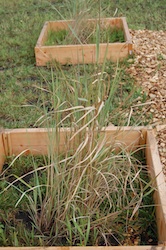Duke Institute for Genome Sciences & Policy (IGSP) believes that it has altered a gene in perennial grasses to help them develop more robust roots speeding up the timeline for creating biofuels. According to Philip Benfey, the director of the IGSP Center for Systems Biology, says that perennial grasses for biofuels are advantageous because they can be harvested repeatedly. However, before this can happen, the roots need to be established and this can take up to two or three years. Therefore, he and his team began developing a method to improve root growth.
According to a university release, the research team took a directed genomic approach aimed at identifying genes that become active when cells stop dividing and start taking on the characteristics of the mature, adult cell they are to become.
 “We systematically looked for those genes that come ‘on’ precisely when cells transition from proliferation to differentiation and then turn ‘off’ again just as quickly,” Benfey said.
“We systematically looked for those genes that come ‘on’ precisely when cells transition from proliferation to differentiation and then turn ‘off’ again just as quickly,” Benfey said.
The result of the research that focused on the plant Arabidopsis, and subsequent screening of mutant lines, turned up a single gene, which the researchers call UPBEAT1 (UPB1) that ultimately controls how fast the roots develop.
“It’s possible that by manipulating a single gene, you could get a plant with rapid growth,” Benfey said. He also noted that the prospect of enhancing growth by taking away a gene, rather than adding a gene, is appealing and added that their research suggests the plants are not growing at their full potential.
Along with this finding, the research also alluded to new ways they may be able to produce bigger and stronger plants that can sequester more carbon than other plants.

